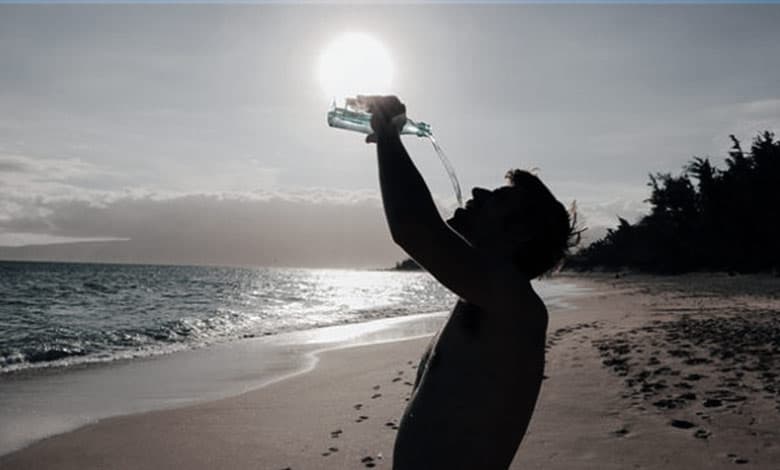
Imagine that you are drifting on a piece of food in the middle of the ocean, and your mouth is dry. You are surrounded by seawater. The sea is the most amazing blue. But then you cannot stand it anymore. You give in and start drinking seawater. Oops! What will happen to you? Are you going to live or die?
The osmosis process allows water to pass through the cell’s membrane but blocks the salt. Drinking too much seawater will increase the outside cells’ saltiness, forcing water molecules out to restore balance. So it will release more water, and the body will dehydrate soon.
After that, some cells will burst, which causes seizures, coma, and sometimes death. How long do we survive by drinking seawater? We will know the answers in this article. Let’s get started.
How long can you survive drinking sea water? (Saltwater effect)
Seawater has a high concentration of salt, around 35 grams per liter, which is substantially more than what human bodies can safely process. Despite being a liquid, seawater can dehydrate you. The salt concentration is so high that it draws water out of your cells to dilute the excess salt, leading to net water loss and dehydration.
Your kidneys can only produce urine that’s less salty than seawater. So, when you drink seawater, your kidneys need more water to remove the extra salt, which could eventually lead to kidney failure. Drinking seawater can disrupt the balance of electrolytes in your body. This can lead to serious health conditions like muscle cramps, weakness, seizures, and potentially even heart rhythm disturbances.
About 72% of Earth is covered in water, but 97% is salty ocean water unsuitable for drinking as clean drinking water becomes scarce. You may be wondering what happens if I drink seawater. From a biologist’s point of view, seawater is toxic to humans because your body cannot get rid of the salt from seawater.
Also, our kidneys are the filters separating waste material and the blood. Then this waste is stored in the form of urine in the bladder, ready to be exposed to the body. But the kidney cannot make urine from a concentration of salts of more than 2%. Seawater is made up of approximately 3% salt.
So if we drink it to quench our thirst, the kidneys must use existing water from our body to dilute the extra salt, eventually leading to excessive thirst and dehydration.
Maybe you have a better question, die of thirst or drink seawater? It is the exciting part. In 1952, a French biologist a doctor named Ellen Bombard, did an experiment called voluntary castaway. He voluntarily tested how many days a man could survive by drinking seawater.
After 20 minutes, saliva in the mouth reduces the saline in the water the man has swallowed. Though he survived 65 days, he lost 25 kilograms of weight. So excessive saltwater or salinity causes death; the survival period depends on the body’s power and the amount of salt in the water.
Read more similar topics:
Why Does Salt Water Dehydrate You?
Can Seawater Be Used For Irrigation?
Why Does Salt Make Food Taste Better?
References:
“Sodium Chloride MSDS.” Sigma Aldrich.
Lide, D. R., CRC Handbook of Chemistry and Physics (86th ed.).
“Solubility.” University of Wisconsin Fundamentals of Chemistry.
